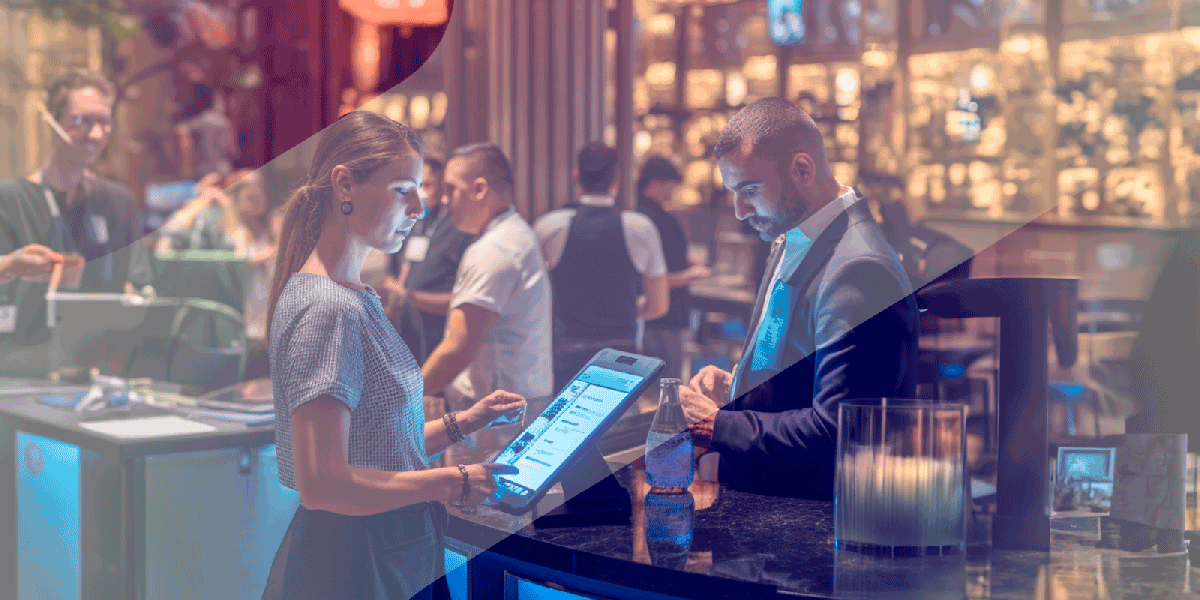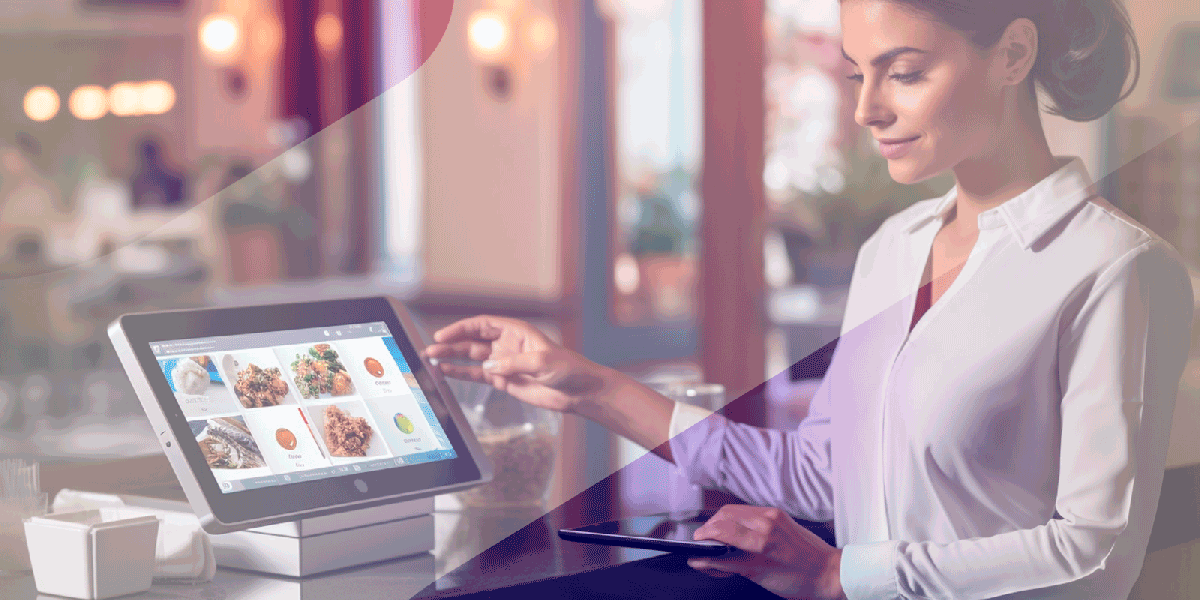Do Hotel Guests Prefer Digital Check-ins?
Embracing the Digital Wave: Guest Preferences for Hotel Check-ins
In the hospitality industry, the first impression is crucial, and for many guests, the biggest initial impression is formed at check-in. With technology advancing at a rapid pace, hotels are continually exploring ways to enhance the guest experience while streamlining operations. One innovation that is gaining traction is digital check-in, a service that allows guests to bypass the front desk and access their room with a few clicks or taps on their device. But the big question remains: Do guests really prefer this digital approach over the traditional reception encounter at the hotel?
The Convenience and Benefits of Digital Check-in for Guests
For the modern traveler, efficiency and personalisation are key. Digital check-in systems offer the promise of both by allowing guests to check in at their leisure, often en route to the hotel or even before leaving their home. This service can free them from the constraints of front desk hours or queues, particularly appealing to those with tight schedules or a desire for a contactless experience.
Moreover, digital check-in can come with additional perks such as choosing a room from a digital floor plan, customising room preferences, or even upgrading to a better view—all from their smartphone. These user-driven features not only empower guests but also provide them with a sense of control over their stay, which is a hallmark of a great guest experience.
Comparing Digital Check-In with Traditional Face-to-Face Interactions
Despite the surge in digital convenience, the hospitality industry cannot forget the value of human touch. Traditional check-in processes have the advantage of personal interaction, where frontdesk staff can warmly welcome guests, offer assistance, and answer any immediate questions, making it a more personal and potentially memorable experience.
For some guests, especially those who may be visiting for the first time or are unfamiliar with digital interfaces, face-to-face check-in is reassuring and an essential part of the hospitality experience. The key is for hotels to understand their clientele and provide options that cater to varying preferences.

For the modern traveler, both efficiency and personalisation are key.
How Digital Check-in Can Complement a Personal Service
Digital check-in doesn't have to replace the personal touch that frontdesk staff provide; it can complement it. Staff can focus on enhancing the guest experience in other ways, like offering personalized recommendations, addressing special requests with more attention, and being available for more meaningful interactions that go beyond the transactional nature of check-in.
Understanding Guest Preferences: When Do Guests Opt for Digital Check-in?
To understand whether guests prefer digital or traditional check-in, we must look at the situational preferences of travelers. Business travelers, for example, may prioritise efficiency and opt for digital solutions. In contrast, vacationers may prefer the personal touch of a traditional check-in to start their leisure experience on a high note.
Understanding these preferences enables hotels to provide targeted services, such as express check-ins for conference attendees or personalized greetings for couples on a romantic getaway. The goal is to not pigeonhole guests into one experience but offer flexibility that accommodates all.
Implementing Digital Check-in: Tips and Best Practices for Hotels
For hotels looking to implement digital check-in, there are several best practices to consider. Ensuring a user-friendly interface is paramount; if the system is cumbersome, guests might as well queue at the front desk. Clear communication about how to use the digital check-in service is also vital to its success. From reservation confirmation emails to on-site signage, instructing guests on the benefits and procedures for digital check-in can increase adoption rates.
Security is another crucial factor. Hotels must ensure that their digital check-in systems are secure to protect guest privacy and prevent unauthorised access to rooms. Using secure verification methods, such as a one-time code sent to the guest's phone, can help provide peace of mind and keep it easy.

Digital check-in doesn't have to replace the personal touch that frontdesk staff provide; it can complement it.
The Role of Frontdesk Staff in an Increasingly Digital Hospitality Environment
As hotels embrace digital check-in options, the role of frontdesk staff evolves. Their focus may shift toward concierge-like services, providing in-depth knowledge about the local area, assisting with technology, and generally being available to enhance the guest's stay. Staff training should include proficiency in the digital tools offered by the hotel and soft skills to address the diversified needs of guests.
The Future of Hotel Check-Ins: Balancing Technology with the Human Touch
The hotel check-in experience is likely to continue evolving, with technology and personal service finding a balance that suits guest preferences. For many, the ideal scenario might be an option for digital check-in combined with access to on-demand, in-person service.
As we look ahead, integrating technologies such as facial recognition for check-in, voice-activated room controls, and real-time personalisation of the stay experience through mobile apps are on the horizon. However, these advancements must be balanced with a warm, human-centric approach to hospitality—a reminder that in a world full of gadgets and automation, the human element remains irreplaceable.
Personalisation Through Technology: The Digital Check-in Experience
One of the main advantages of digital check-in is the ability to personalise the guest experience right from the start. With the ability to ask questions, or present features like room selection and personalised amenities, guests can tailor their stay to match their preferences, potentially leading to higher satisfaction and loyalty. Also, digital check-in can collect valuable data on guest preferences, which can be used to improve service and personalise future interactions.

Driven by Data: How Digital Check-in Shapes Guest Services
When guests engage with digital check-in platforms, they provide data that can be insightful for hotel management. Understanding peak check-in times, guest preferences, and common questions or issues can help hotels optimize their operations and troubleshoot areas that may lead to guest dissatisfaction. Data-driven approaches enable hotels to be more proactive in managing the guest experience.
Best Practices for a Seamless Digital Check-in Process
Incorporating thoughtful touches like welcome messages upon digital check-in completion, reminders about hotel amenities, and quick access to customer support can enhance the digital experience. Accommodation providers may also consider incentivising the use of digital check-in with loyalty points or special offers to encourage guests to try this convenient option.
Empowering Frontdesk Staff in the Digital Era
Equipping frontdesk staff with the skills to navigate both traditional and digital services ensures that they can cater to guests' needs, regardless of how they choose to check in. Training programs that focus on empathy, communication, and technical skills are essential in empowering staff to provide exceptional service in a digitised hospitality environment.
Looking Towards Tomorrow: Anticipating Changes in Guest Check-in Preferences
The hospitality industry needs to stay agile, always ready to adapt to changes in guest behavior and preferences. A willingness to implement feedback, invest in emerging technologies, and focus on guest experience will help hotels maintain relevance and appeal in a competitive market.
The Check-In Experience - a Gateway to Guest Satisfaction
The check-in experience is the gateway to the overall guest experience at a hotel. By ensuring a smooth, efficient, and welcoming start to their stay, hotels can set the tone for a successful visit. Digital check-in, when implemented thoughtfully, can be a powerful tool in achieving this goal, but it should be part of a broader strategy that values guest choice and the enduring importance of human interaction in hospitality.
Most recent blog posts
- PMS integration to Xero
- PMS API Snakes and Ladders
- Guest Experience - The Checklist
- Guide to GDPR
- 7 best ways to get reviews onto your hotel website
- The power of story for accommodation
- The importance of blogging
- Managing your cost of sale strategically: Withholding
- Guide: How to sell your serviced apartments with photography
- 5 tips for Spotting Google Analytics Ghost Spam & How to Deal with it
